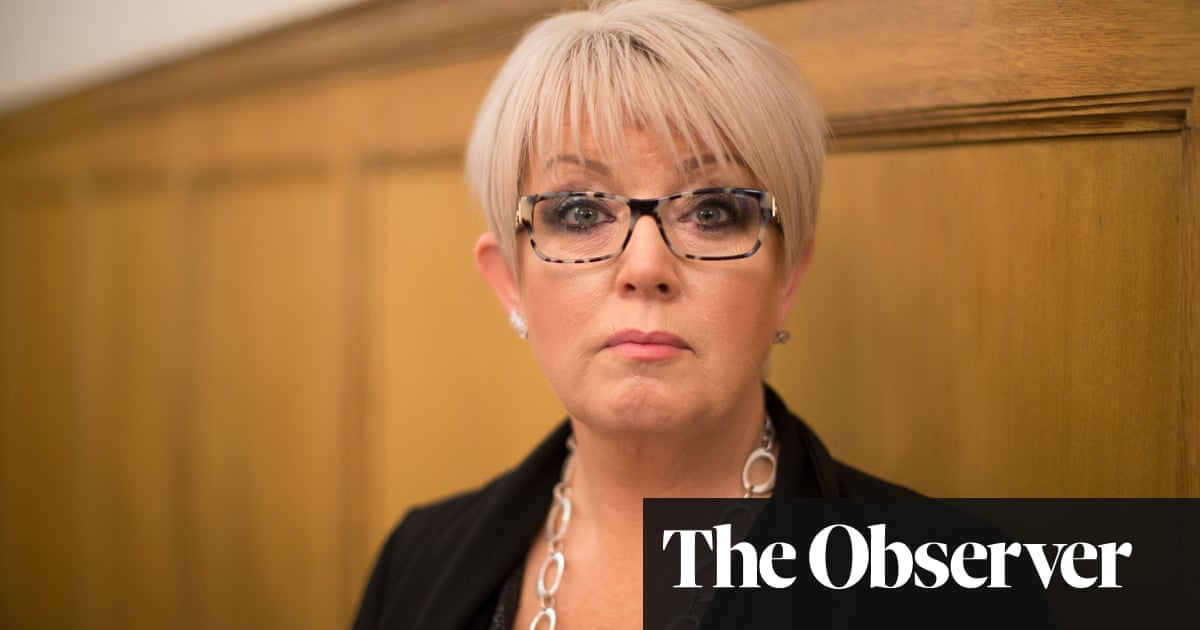
Victims of crime are dying waiting for justice as they face delays of up to six years for their cases to be dealt with in court, the victims’ commissioner for England and Wales has said.
As a new law to enshrine victims’ rights is scrutinised in the House of Lords, Baroness Helen Newlove warned that the wider justice system was “on its knees”, with “shameful” backlogs leaving victims suffering acute mental health problems.
She said: “You’ve got victims waiting sometimes six years to go to court. These are victims of rape and sexual abuse, and children who have been abused. One girl, by the time it got to court it took six years. And she took her own life because of the process.
“People who are already damaged and traumatised are trying to get on with their life, and they can’t possibly, because it’s always waiting, waiting, waiting. Sadly, some people, it really affects their health and mental wellbeing, and they take their life.”
She said that while legislation could improve the experience of victims in the system, little would change without separate action to tackle court delays. She also criticised government plans to draft in 150 judges and 100 officials and commandeer extra court rooms to deal with fast-track Rwanda appeals while not doing the same for the criminal justice system.
“It’s shameful if they do get them because we’ve got other things to do,” she said. “Why can’t they do that with other cases? Why should it be one and not the other? That doesn’t sit well for victims waiting for a court date.”
Latest figures show the backlog of criminal cases in the crown courts is at an all-time high. In the year to September 2023 there were 66,547 cases waiting to be heard in England, Ministry of Justice data shows, with 28% in the court system for over a year.
Such delays are on top of the time it takes for police to investigate, and for prosecutors and defence lawyers to build their cases, which can be several years. The average total time from an offence occurring to case conclusion is now 671 days.
The Ministry of Justice said it had taken “decisive action” to “speed up justice for victims”, and that courts were now operating at “full throttle”, following disruption due to the pandemic and industrial action. Measures included opening two permanent “super courtrooms” in Manchester and Loughborough, running Nightingale courtrooms, and increasing investment in recruitment, with a goal of recruiting 1,000 judges. “More criminal cases are coming to the crown court than at any point over the last two years,” a spokesperson said.
But Newlove said the persisting backlogs showed ministers needed to “get creative”. She likened the situation to the Post Office and infected blood scandals in which people died awaiting justice. “People should realise the depth of what it can do to somebody’s mental wellbeing. This is about somebody’s life that has been damaged. They have never been listened to by a system that should be there to protect them.”
Newlove, a Conservative peer who was appointed independent victims’ commissioner for England and Wales in October, having previously also held the post from 2013-19, has campaigned on victims’ rights since her husband, Garry, was kicked to death in 2007 in front of their two daughters.
She said that since her husband’s murder there had been significant progress in some ways – with greater awareness of the challenges victims face and a bill aimed at increasing their rights in law currently going through parliament – but that in other ways things had got worse.
“We talk about victims more than we did. That’s a positive. But the negative is the criminal justice bit,” she said. “You’ve kind of got one area sorted to a degree, but the other area isn’t. It’s frustrating; it’s like wading [through] jelly at times.”
She said there were no quick fixes, but that starting points could include courts being open for longer and judges being paid more to work in the evenings and at weekends to help tackle a backlog of cases.
Newlove said there appeared to be “a lot of goodwill” across parties to improve the experiences of victims, including the victims and prisoners bill, which is currently being scrutinised during the committee stage in the House of Lords. The legislation will place a statutory duty on police, council and health organisations to collaborate when commissioning support services for victims.
But she said that if the bill were to become law in its current form, she would be “very disappointed”. Along with victim support charities, she is calling for amendments, including an extension of support to the families of people murdered abroad; increased rights for victims of mentally ill offenders; safeguards to prevent the disclosure of victims’ records such as therapy notes; improved measures to hold agencies like the police to account over the provision of victim services; and an extension of the rights to victims of persistent antisocial behaviour.
Without such changes, Newlove fears the bill has “no teeth” and will “let down victims”. “That wasn’t the purpose and the promise that we were given since I’ve been in this role and came into the House of Lords as a victims campaigner,” she said. With them, however, she believes it is a once-in-a-generation chance to transform how victims are treated: “We have to start listening to the victims. Not just to say ‘Thank you very much’ and do nothing. But to actually listen.”












